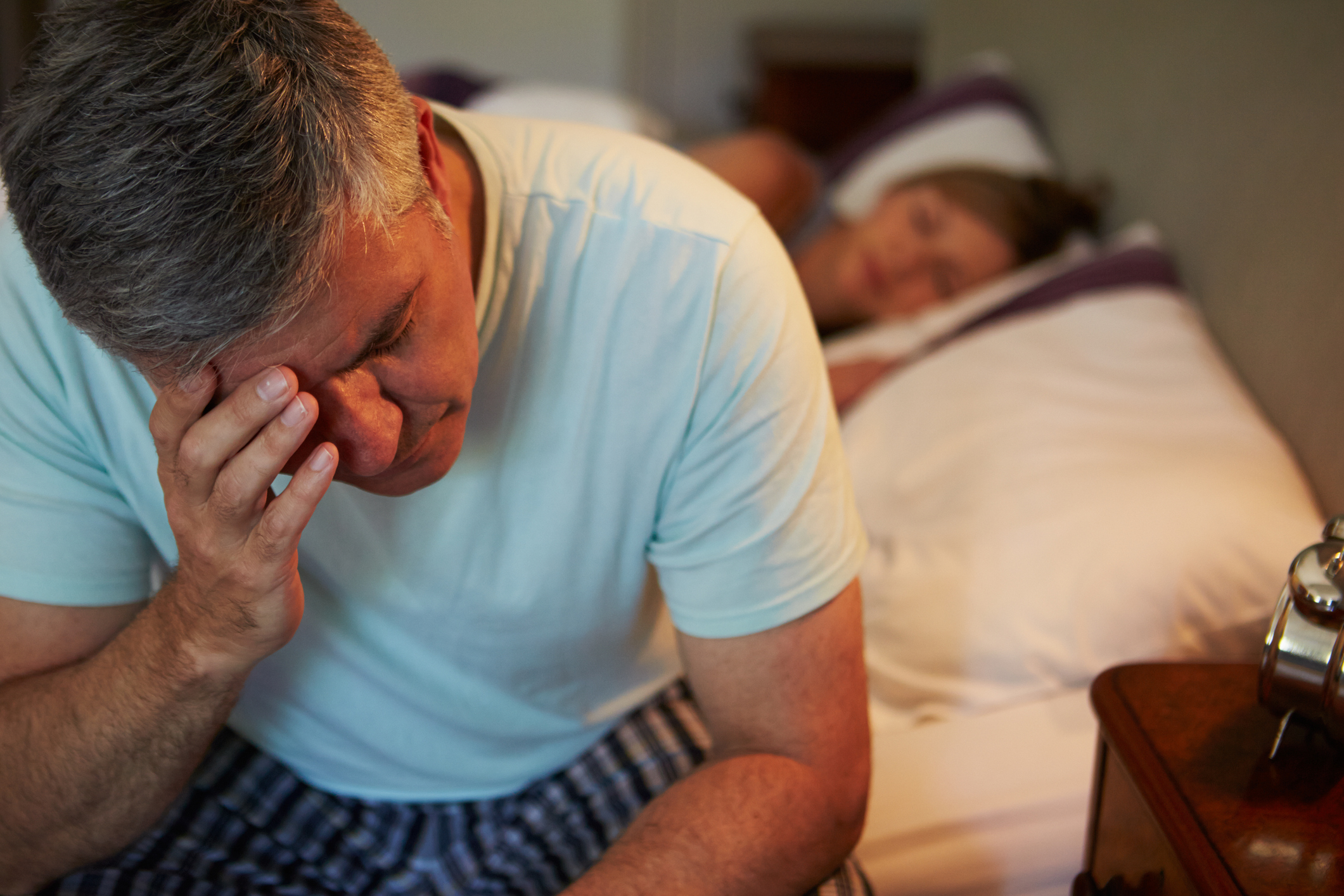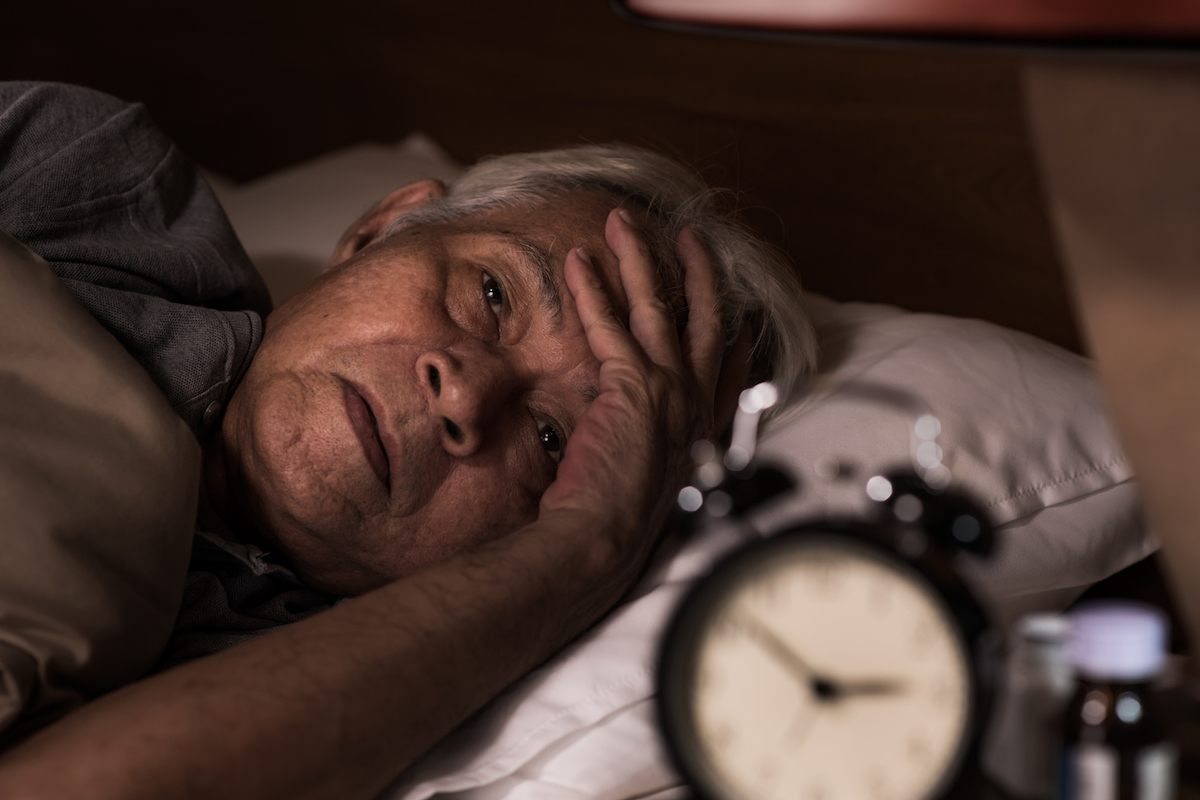RELATED: Doing This When You Drive Could Be an Early Sign of Dementia, Study Says. The new study, published on April 20 in the scientific journal Nature Communications, found that sleeping six hours a night or less a night was linked to an increased risk of dementia in people between 50 and 60 years old. Researchers from the French health research institute Inserm analyzed data from a long-term study by University College London, which followed 7,959 British individuals between 1985 and 2016. They compared the health of adults who didn’t get enough sleep to people who slept the recommended seven hours. Overall, 521 participants developed dementia over the course of the study and the patients were an average of 77 years old when diagnosed. The results show that participants who slept seven hours a night had the fewest cases of dementia. There was a 30 percent increase in dementia risk in those who consistently clocked in a maximum of six hours a night in their 50s and 60s. “Many of us have experienced a bad night’s sleep and probably know that it can have an impact on our memory and thinking in the short term, but an intriguing question is whether long-term sleep patterns can affect our risk of dementia,” Sara Imarisio, PhD, Head of Research at Alzheimer’s Research U.K., said in a statement in response to the new study. “We know that the diseases that cause dementia start up to two decades before symptoms like memory loss start to show, so midlife is a crucial time for research into risk factors.” Earlier this year, researchers at Brigham and Women’s Hospital and Boston College found that even less sleep means an even greater dementia risk. The study, published in the journal Aging in February, compiled data from the National Health and Aging Trends Study (NHATS) on people 65 and older who are eligible for Medicare. The researchers compared 2,810 seniors who got poor sleep to those who slept an average of seven to eight hours a night over the course of five years. They found that people over 65 who reported sleeping less than five hours per night appeared to be twice as likely to develop dementia. “Sleep deficiency at baseline, when the average age of participants was 76 years old, was associated with double the risk of incident dementia and all-cause mortality over the next 4 to 5 years,” Charles Czeisler, MD, a senior author of the study and chief of the Division of Sleep and Circadian Disorders, said in a statement. “These data add to the evidence that sleep is important for brain health and highlight the need for further research on the efficacy of improving sleep and treating sleep disorders on the risk of Alzheimer’s disease and mortality.” And for more on regular health news delivered right to your inbox, sign up for our daily newsletter.ae0fcc31ae342fd3a1346ebb1f342fcb Alzheimer’s researcher Imarisio said one issue with the newer Nature Communications study, and with the link between sleep and dementia in general, is it “cannot tease apart cause and effect.” “While it suggests that persistent lower sleep duration was linked with an increased risk of dementia, it did not find an association between longer than average sleep duration and dementia risk,” she notes. “We know that changes in sleep are commonly reported in individuals with dementia,” Claire Sexton, DPhil, director of Scientific Programs & Outreach at the Alzheimer’s Association, told USA Today last month. “There has been a chicken and the egg debate about what comes first and whether impaired sleep is a consequence of having dementia or whether it can be a contributing factor to its development.” According to Sleep Foundation, people with dementia or Alzheimer’s Disease frequently experience restless legs syndrome, periodic limb movement disorder (PLMD), obstructive sleep apnea (OSA), REM sleep behavior disorder, and depression, all of which can affect sleep. And cognitive decline can affect how restorative sleep is. There are three stages of sleep: first comes light sleep; then deep sleep, called slow-wave sleep; and finally, dream sleep, called REM (rapid eye movement) sleep, according to the Sleep Foundation. “Slow-wave sleep and REM sleep are critical parts of how sleep works to restore the body and mind,” the experts explain. “People with dementia spend less time in slow-wave sleep and REM sleep and more time in the earlier stages of sleep.” According to Imarisio, there are a few other things that can help stave off cognitive decline in addition to sleep. “While there is no sure-fire way to prevent dementia, there are things within our control that can reduce our risk,” Imarisio said. “The best evidence suggests that not smoking, only drinking in moderation, staying mentally and physically active, eating a balanced diet, and keeping cholesterol and blood pressure levels in check can all help to keep our brains healthy as we age.” RELATED: If You Have This Blood Type, Your Dementia Risk Is High, Study Says.



